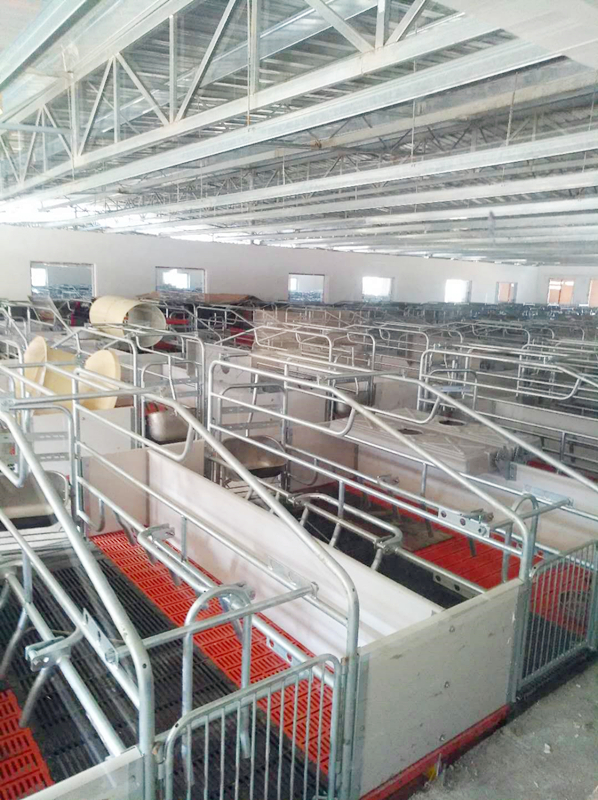 In a bid to promote sustainable and efficient pig farming practices, a leading agricultural technology company has unveiled state-of-the-art equipment set to revolutionize the industry. Employing cutting-edge technologies, these innovative solutions aim to enhance productivity, animal welfare, and environmental sustainability in pig farming operations.
In a bid to promote sustainable and efficient pig farming practices, a leading agricultural technology company has unveiled state-of-the-art equipment set to revolutionize the industry. Employing cutting-edge technologies, these innovative solutions aim to enhance productivity, animal welfare, and environmental sustainability in pig farming operations.
With the global demand for pork steadily rising, this groundbreaking equipment promises to meet the growing needs of the industry while addressing concerns surrounding animal welfare and environmental impact. Developed by a team of experts, these new tools and systems are set to transform traditional pig farming practices.
One of the key innovations is the automated feeding system, designed to ensure precise and optimal nutrition for each pig. This system greatly reduces the workload for farmers while guaranteeing that the animals receive the proper feed and nutrients they require at each stage of growth. Furthermore, this technology minimizes feed wastage, reducing costs for farmers and preventing excessive strain on the environment.
Another remarkable addition to the equipment lineup is the intelligent climate control system. By constantly monitoring and regulating temperature, humidity, and ventilation within the pig housing, this system ensures a comfortable and healthy environment for the animals. Maintaining optimal conditions not only enhances animal welfare but also increases their overall productivity, resulting in higher growth rates and improved meat quality.
Additionally, the introduction of advanced waste management systems has been a game-changer in minimizing the environmental impact of pig farming. These systems utilize anaerobic digesters, which convert pig waste into biogas and nutrient-rich fertilizer. Not only does this offer a renewable source of energy for the farm, but it also significantly reduces greenhouse gas emissions, contributing to a more sustainable and eco-friendly farming operation.
Another breakthrough is the implementation of precision livestock farming techniques. This involves utilizing precision sensors and data analytics to monitor each pig’s health and behavior. Identifying any potential signs of disease or distress early on allows prompt intervention, preventing the spread of illness and minimizing losses. Farmers can closely monitor the pigs’ growth, activity levels, and feeding patterns, ensuring optimal conditions for their development.
Moreover, this equipment ensures streamlined and efficient workflow through its automated sorting and weighing capabilities. The sorting system uses cutting-edge algorithms to categorize pigs based on weight, size, or any other predetermined specifications. This not only simplifies the process of segregating and moving pigs but also allows farmers to make data-driven decisions for breeding or sale purposes.
While the initial investment in this modern pig farming equipment may seem significant, the long-term benefits far outweigh the costs. Farmers can expect increased efficiency, higher productivity, reduced labor requirements, and improved animal welfare, leading to better quality pork and increased profitability.
In conclusion, the introduction of these advanced pig farming technologies is set to transform the industry by promoting sustainability, efficiency, and animal welfare. With their ability to automate tasks, monitor livestock health, and optimize feeding regimes, this equipment is poised to play a pivotal role in meeting the increasing global demand for pork while simultaneously minimizing the industry’s environmental impact. As pig farming continues to evolve, these innovations pave the way for a more sustainable and responsible future for the industry.
Post time: Oct-16-2023
